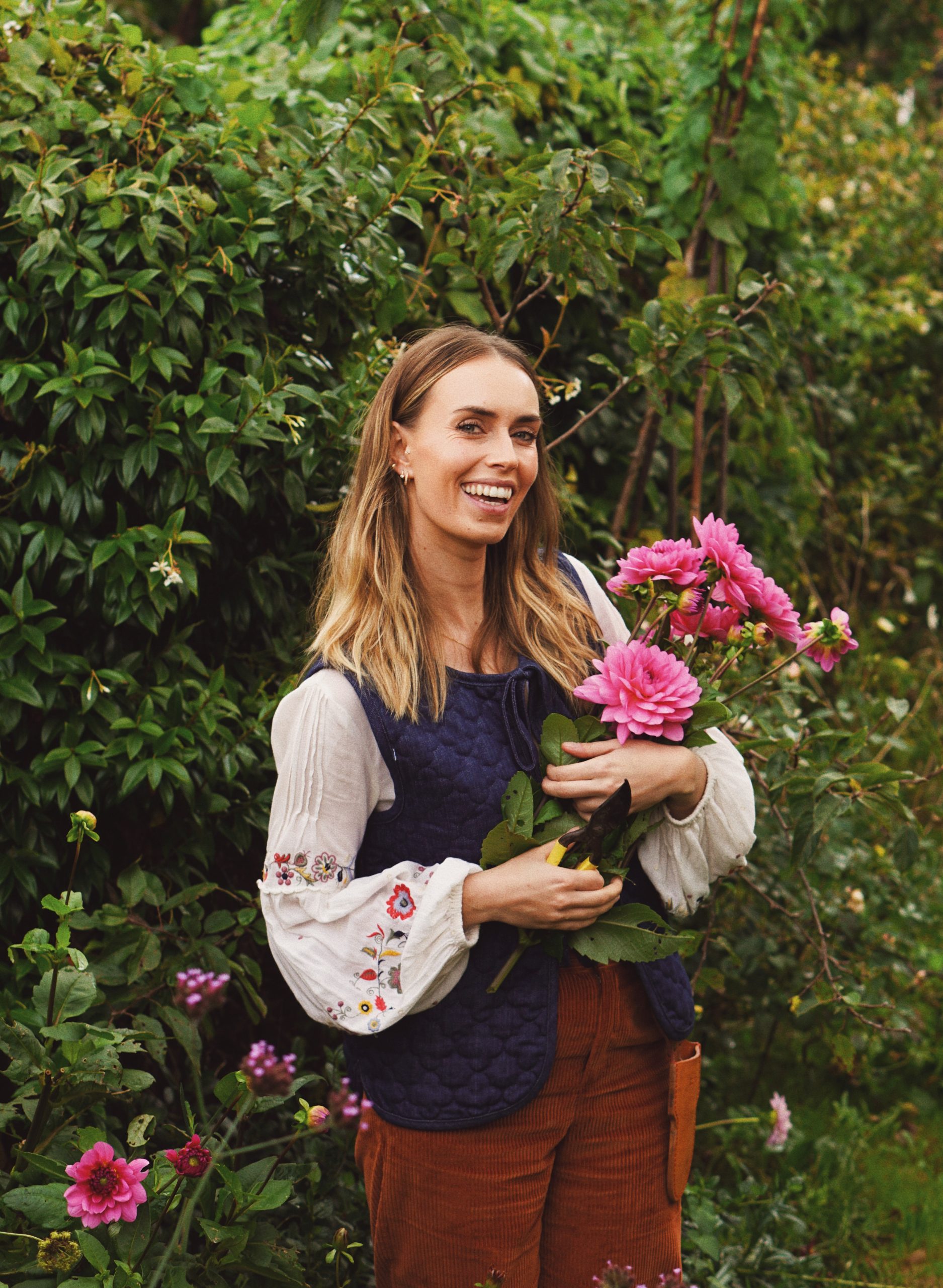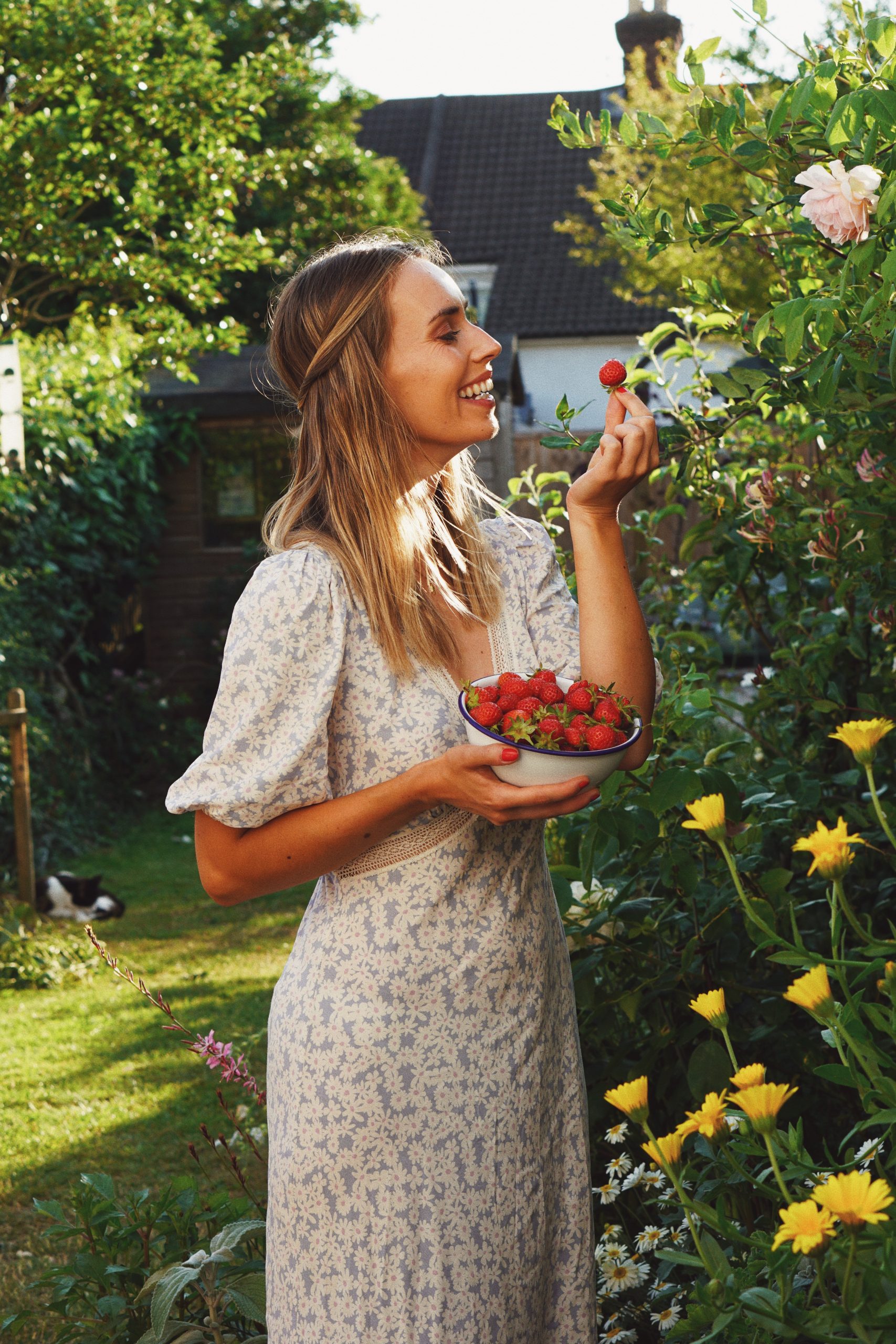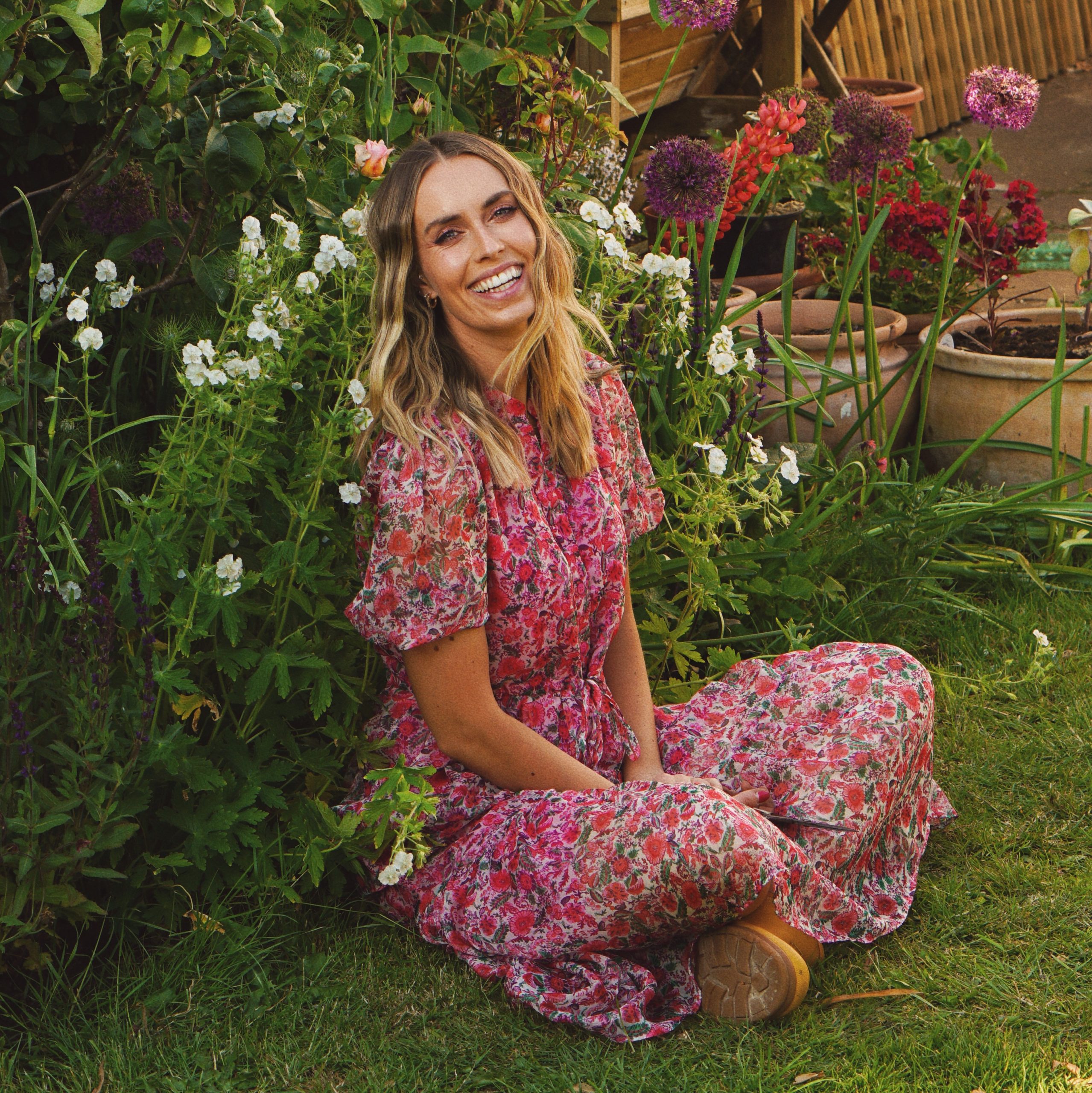There’s a reason that ‘gardeners’ are often voted as the happiest workers in the UK – not only are we outdoors every day, we’re being physical, we’re working in and among nature, and we’re not undertaking huge amounts of pressure and stress in the workplace. We often associate nature and the environment with having positive mental wellbeing, but why is nature, and particularly gardening so good for us all?
Gardening has long been associated with our mental and physical wellbeing. Many plants have been used for hundreds of years medicinally and are still used today. Chamomile is thought to help reduce anxiety and inflammation, it’s widely reported that rosemary can improve your memory and boost your immune system, and research shows that evening primrose is effective in the treatment of acute menopausal problems. Even plants such as vinca (periwinkle) are used to create chemotherapy drugs.
But you don’t have to drink a mug of chamomile tea to get the benefits of nature and gardening. A number of universities alongside the Royal Horticulture Society have done studies that prove that gardening keeps you fit and healthy, reduces anxiety and depression and prevents cognitive decline. The NHS have even made gardening, under the term ‘Green Social Prescribing’, part of its long-term plan with GPs prescribing ‘the practice of supporting people in engaging in nature-based interventions and activities to improve their mental health’.
When there’s so much evidence that gardening is beneficial to us in so many ways, it’s fair to say, we should all be gardening! Whether you have a large garden, a courtyard, a balcony, an allotment, a community garden, or just a houseplant, here are five different things to try if you want to give gardening a go and see how it has a positive impact on your everyday life.

1. Getting your hands in the soil
Whether you’re a glove wearer or not (an infinite gardening debate…) why not get your hands dirty and repot that plant? Plant out those plug plants that have just arrived! Have a mulching session?! It’s been proven that getting your hands in the soil indirectly releases a small amount of serotonin, making us feel better. You might need a nailbrush afterwards though…
2. Sowing some seeds
Gardening encourages us to have more patience and live more slowly, it’s impossible to speed up seed germination so that it happens in a number of minutes! Sowing a seed and watching it germinate over a number of days or weeks is a truly thrilling experience – we all remember the days of waiting for cress seeds to grow on damp kitchen roll! Sow some seeds in a propagator or a recycled plastic supermarket container and wait for the magic to happen. You’ll be amazed by the satisfaction of growing a huge plant from the tiniest seed.
3. Listening to the birds
Fill up your bird feeders, top up your bird bath and wait for your feathered friends to arrive. There’s nothing like waking up to the dawn chorus and watching numerous species of birds flit and peck at the feeders. The more you encourage the birds to your garden, the more you’ll enjoy their beautiful birdsong.
4. Forest bathing
If you don’t have a garden but you love getting out into nature and enjoying the benefits of our beautiful green spaces, why not try some forest bathing? (Don’t worry, you won’t be expected to strip down to your bikini!) Forest bathing is an ancient Japanese practice of relaxation where you’re encouraged to use all of your senses to connect with nature. It’s no different from having a walk in your local woods, but it might help to switch your phone off, focus on your breathing and take in the sight, sound, and feel of the trees around you.
5. Relaxing with a cup of tea
Once you’ve sown your seeds, planted your plug plants and done a spot of forest bathing, the most important thing you can do next is to enjoy your space. Try to switch off from the weeding, the patio cleaning and the repotting, and enjoy whatever garden space you have with a nice cup of tea! Us gardeners love gardening so much, it can be tricky to remember to switch off, sit back and appreciate what we’ve done, and this is just as important as doing the gardening itself. Why not invite some friends or neighbours over to sit in the garden with you? You can talk them through your garden, and you never know, they might even see the benefits of gardening and have a go themselves!

For more stories, advice and interviews, head to the Menopause Your Way Stories hub. To browse and shop a curated edit of menopause products, visit the Menopause Your Way page on QVC.
The content of the QVC website is for information only. It is not intended as a substitute for professional medical advice, diagnosis or treatment. Always seek the advice of your doctor or other qualified health provider with any questions you may have regarding a medical condition. Never disregard professional medical advice or delay in seeking it because of something you have read on the QVC website.
We understand there’s a lot of information out there on the menopause. You can read through the NICE guidance on menopause management, as well as the NHS overview on the menopause.




